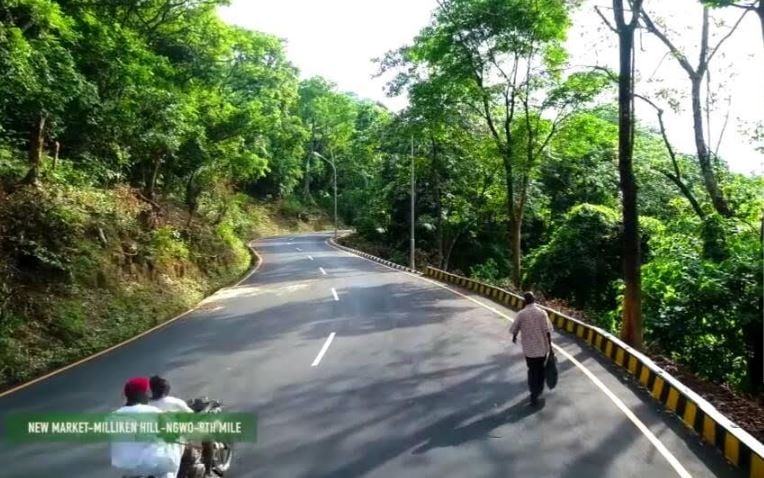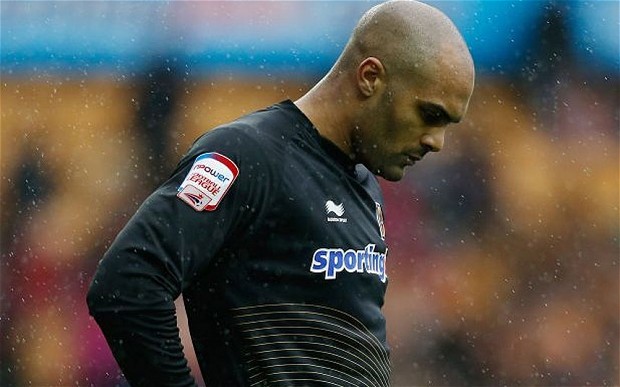With its many serpentine curves plus the fact it lies about one hundred and fifty metres atop a narrow ledge overlooking a deep ravine, a ride through the three-kilometre Milken Hill road can never seem like anything less than an experience for the intrepid. Not even at its best condition has it ever been less so, let alone when pothole-strewn and with neither safety side curbs nor streetlights to illuminate this treacherous stretch at night as had been the case before it was reconstructed by the Gov. Ifeanyi Ugwuanyi administration and reopened for use last week.
But notwithstanding the fright that riding along the Milken Hill road evokes, it still represents a must-see for visitors to the Coal City owing to the scenic view that it offers, besides being in itself a sheer engineering wonder.
Named after the British engineer credited with its painstaking design, the Milken Hill road was built after the discovery of coal in 1909 to ease commuting between the colonial office in Enugu and the then newly established mines some of which lay in the bowels of the hills. And for decades until the construction of the Enugu – Onitsha highway in the early ’80s, the road served as the only access into Enugu from the Niger Bridge and inbound traffic from the northern corridor.

Advertisement
Governor Ugwuanyi describes it as “our natural rollercoaster”. As he had also fittingly observed while flagging off the rehabilitated 12-kilometer 9th Mile – Ekochin – Ngwo – Milken Hill – New Market federal road, “no road in our environment affords tourists and motorists the beautiful view of Enugu that this road offers”. Indeed, it is unusual for travellers to experience a ride through Milken Hill and not be struck by its awesome splendour and, of course, not have their hearts in their mouths. It’s not a surprise then this legendary route has over the years spawned many tales that continue to capture the imagination. Never mind that quite a number of those seems rather farfetched, like the one about a commercial luxury bus that got stranded as the driver curiously tried to make a u-turn on the narrow strip and had to be pushed into the valley to make way for other vehicles.
There was also the story of a military truck that veered off the road into the surrounding gorge in the 1970s. According to this gory tale, as the lone occupant clambered out of his lorry now stuck in the valley’s dense vegetation, he was attacked by a large snake and subsequently eaten up. Rescuers were said to have found only the hapless soldier’s boots the next morning and his bloated and largely immobile predator a few metres away as they combed the thicket.
So Milken Hill has always occupied a prime space in the South-East region’s popular culture which not even the construction of the Enugu – Onitsha highway could suppress because for a vast population, especially in the Ngwo axis, it remained the nearest route to the state capital and back home.
Advertisement
Besides, the increasing deterioration of sections of the Enugu – Onitsha road meant Milken Hill was soon bearing the same old traffic pressure it had borne when it was the sole passageway, as motorists desperately sought alternate routes away from the collapsed federal highway. This increased pressure, coupled with decades of neglect, brought some ugly results evident in the potholes that once dotted various spots along the stretch, all of which combined to make commuting there an anxiety-filled experience. This was particularly heightened at night due to absence of streetlights then.
Today that seems like ages ago as the road is now well paved with safety curbs erected on the sides because “you could as a matter of fact drive on this road at 1.00am,” as former minister of state for foreign affairs and prominent leader of Ngwo community, Chief Dubem Onyia, had gushed during the flag-off ceremony for the reconstituted road.

It wasn’t an exaggeration; rows of streetlights now installed along the entire stretch mean commuting could be done at nightfall without any sense of foreboding. “I usually had to close down my shop earlier than other traders because driving through Milken Hill at night was very frightening,” said a trader who lives at Ngwo but owns a stall at New Market, located roughly one hundred metres from the foot of the hill at the Enugu end of the road. Her comments mirrored the anxieties of the many public servants, traders, artisans and sundry workers who had to endure a daily commute from home to workplace and back both in the night and even during inclement weather.
Advertisement
The excitement that greeted the formal reopening of the road is further indicative of how important it is in the lives of the people. And given that no government had ever carried out any palliative works on the road since its construction in the early 20th Century as Onyia explained, the sheer joy exuded by the crowd that converged to witness the ceremony was clearly understandable.
For the governor though, it was simply a question of keeping his social contract with the people and giving credence to his philosophy that the suburbs should not be communities which politicians visit only during elections.
Ani, formerly editor of ThisDay, The Saturday Newspaper and later Saturday Telegraph, is senior communications aide to the governor of Enugu state.
Advertisement
Add a comment







